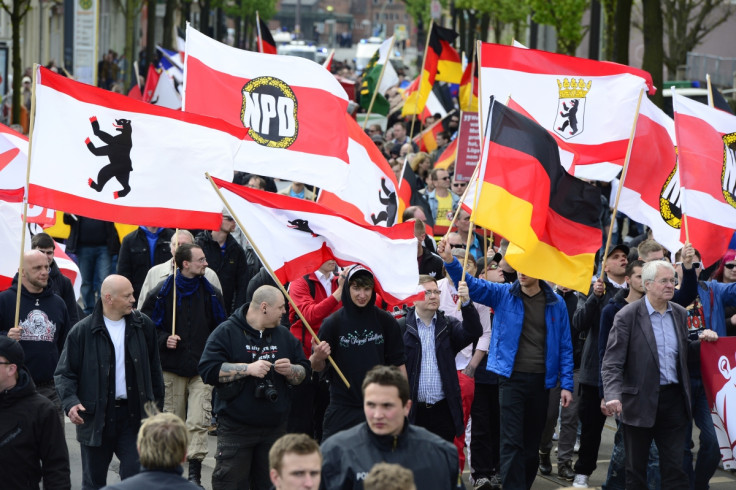Germany seeks to ban neo-Nazi NPD amid increasing attacks on refugees

Germany's highest court will hear a request to ban the neo-Nazi National Democratic Party (NPD), amid increasing attacks on refugees and immigrants.
The motion launched by Germany's upper house of parliament has the backing of chancellor Angela Merkel's government, though it has not formally joined in the appeal. Critics though argue that the move will give the far-right, anti-immigrant party a national platform, and allow its members to depict themselves as martyrs.
Formed in 1964 as a successor to the German Reich Party, the organisation currently has approximately 5,000 members. The group has attempted to capitalise on growing concern about the millions of refugees which entered Germany in 2015, holding rallies in cities across the country.
The party's strongest support is in the former-Communist east, where it holds seats on several local councils, and is represented on the state assembly of Mecklenburg-Western Pomerania. It also has one seat in the European parliament.
Burkhard Lischka, a Social Democratic lawmaker, recently warned that Saxony was in danger of becoming a "failed state" amid increasing support for far-right extremism, with crowds cheering as a refugee shelter went up in flames in Bautzen, Saxony, in February.
Only two parties have been barred in Germany since World War II, the fascist SPR in 1952, and the German Communist Party four years later.
A previous attempt to ban the NPD in 2003 failed, after the party successfully argued that the presence of state informants effected the evidence used by the prosecution.
Five state premiers as well as interior ministers and police and security chiefs will be making the case at the country's constitutional court, where they will seek to persuade judges that the party represents an active threat to the democratic order, and holds an "aggressive and combative attitude".
© Copyright IBTimes 2025. All rights reserved.






















